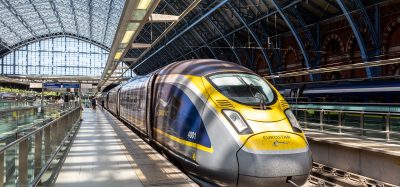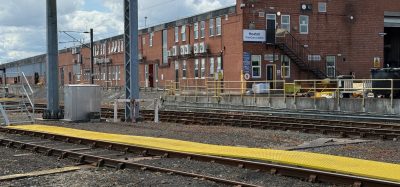Strengthening Germany’s railway and setting objectives for the future
Posted: 26 August 2020 | Andreas Scheuer | No comments yet
Andreas Scheuer, Germany’s Federal Minister of Transport and Digital Infrastructure, writes about the objectives for the country’s railway network, which includes strengthening its innovative capacity, attractiveness and competitiveness, and setting an example for stronger European connectivity.


Travelling by train from Paris to Warsaw, from Frankfurt to Barcelona, or from Brussels to Stockholm, directly and without changing trains. What is still wishful thinking today is set to become reality tomorrow. How to make a ‘Trans Europe Express 2.0’ happen is one of the questions we will address during the German European Union (EU) Council Presidency in the second half of 2020. Such services will make travelling by train more attractive and a strong alternative to car or air travel. Rail freight in Europe is also to become stronger and more modern. The COVID-19 pandemic has shown how essential rail freight is to guaranteeing stable supply chains and ensuring the provision of goods and services. We are enlisting modern technologies to move even larger volumes of goods quickly and reliably on railways in the future. Intelligent freight trains with digital automated couplings and equipped with European Rail Traffic Management System (ERTMS) are to become standard throughout Europe, if possible. We will set the course for this during our EU Council Presidency.
In Germany, we have set ourselves ambitious objectives for the railways: By 2030, we want to double the number of rail passengers and shift more freight to the railways.
In Germany, we have set ourselves ambitious objectives for the railways: By 2030, we want to double the number of rail passengers and shift more freight to the railways. To achieve this objective, record sums are being invested in local, regional and long-distance rail services, in rail freight as well as in the infrastructure, such as tracks, stations and signal boxes. We are promoting the rail mode more strongly than any other German government has done before. Moreover, we are doing everything we can to help the railway sector emerge from the pandemic relatively unscathed. In the economic stimulus package of the federal government, for example, more than €7.6 billion has been earmarked for rail transport alone.
To strengthen the railways’ innovative capacity, attractiveness and competitiveness, we concluded a rail pact at the end of June 2020 and adopted the Rail Transport Masterplan. What is so special about this is that players from the entire railway sector worked together and agreed on the measures they should contain. Such a consensus is unique in Europe.
A pivotal element for us is the introduction of regular interval services throughout Germany – we call it the ‘Deutschlandtakt’: The greatest innovation our rail transport has seen since the 1994 reform of the railways.
A pivotal element for us is the introduction of regular interval services throughout Germany – we call it the ‘Deutschlandtakt’: The greatest innovation our rail transport has seen since the 1994 reform of the railways. In the future, passenger trains are to meet every 30 or 60 minutes at our main stations and proceed on their journey after short stops. Under the motto “more frequent – faster – everywhere”, changing trains is to become easier, services will be more reliable and journey times will often be significantly reduced. The importance of shorter journey times can be seen on the new line from Berlin to Munich – once it opened to offer reduced journey times to just four hours, passenger numbers were reaching record high figures pre-COVID-19. We hope to see a similar effect with the planned upgrades that will offer future travel from Bonn to Berlin in under four hours.
Also important to us is that rail customers experience the benefits of the regular interval services throughout Germany as soon as possible. We will not wait until 2030 and then implement the target timetable in one fell swoop, but rather adapt it in stages after every upgrade is complete. Thus, regular interval services throughout Germany will soon be introduced in the first few regions when the next timetable change occurs – the added value and better-quality services will be felt by the passengers immediately. The regular interval services will also provide advantages to freight transport: On one hand, benefitting from the targeted upgrading of the infrastructure, and on the other hand, the regular interval timetable will improve the availability of freight train paths. Germany’s regular interval services will benefit everyone and set an example for stronger European connectivity and regular interval services throughout Europe.
We need strong and efficient railways: For the climate and the environment, for the economy and growth and for people. Therefore, we will make the 2020s the decade of the railways.


Issue
Related topics
Cargo, Freight & Heavy-Haul, Coronavirus/COVID-19, Digitalisation, Infrastructure Developments, Operational Performance, Passenger Experience/Satisfaction, Regulation & Legislation, Route Development, Signalling, Control & Communications, Timetabling/Scheduling
Related organisations
German Federal Ministry for Transportation and Digital Infrastructure (BMVI)








